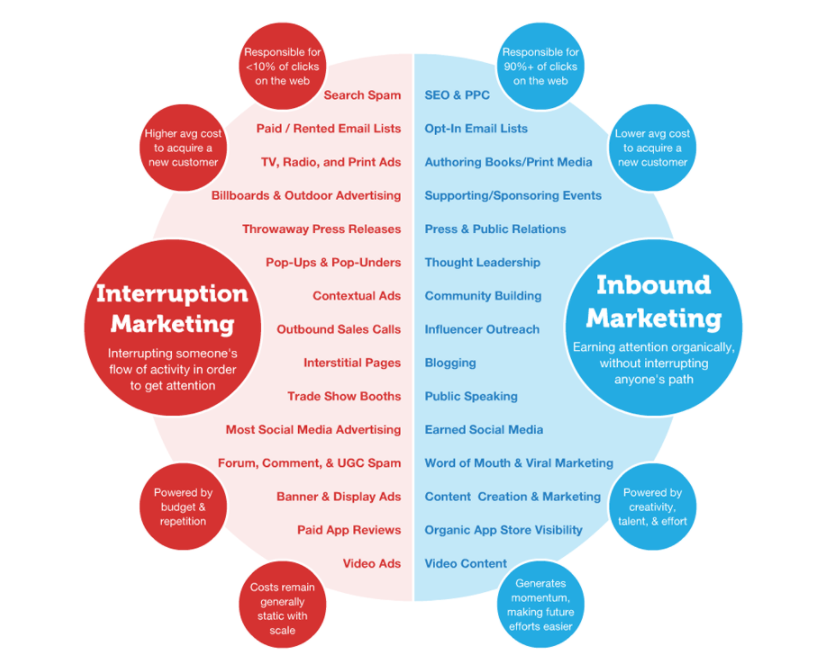In the ever-evolving world of marketing, businesses grapple with a critical decision: choosing the right approach to connect with their audience effectively. Is Outbound Marketing More Effective Than Inbound Marketing? This question has sparked intense debate among marketing professionals. Outbound marketing is often seen as the traditional push approach, whereas inbound marketing pulls customers in with valuable content. Each strategy has its distinct methodologies, benefits, challenges, and audience impacts. Analyzing these aspects helps in understanding which tactic may better align with your business goals.
Understanding Inbound Marketing
Definition and Core Strategies of Inbound Marketing
Inbound marketing transforms how businesses interact with potential customers. Through content creation that adds value, it pulls audiences in rather than reaching out to grab their attention. Its core strategies revolve around attracting, engaging, and delighting customers, fostering a relationship that encourages long-term loyalty. Here’s how:
- SEO
- Content marketing
- Social media
- Email marketing
- Lead nurturing
Benefits of Inbound Marketing
Inbound marketing is about building and benefiting from connections over time:
- Often yields a higher ROI in the long run
- Facilitates improved targeting and personalized experiences
- Helps in establishing brand authority and solidifying customer retention
- Generally incurs lower costs than outbound counterparts
Challenges of Inbound Marketing
Despite its rewards, inbound marketing presents certain hurdles:
- Visible results can take time
- Demands significant content and SEO investment
- May not suit every business model or market

Source: GrowthRocks
Understanding Outbound Marketing
Definition and Core Strategies of Outbound Marketing
Outbound marketing channels messages directly to a broad audience, regardless of whether they have expressed interest. Some strategies commonly associated with outbound marketing include:
- Cold calling
- Direct mail
- Telemarketing
- Trade shows
- Traditional advertising
Benefits of Outbound Marketing
Despite the negative rap, outbound marketing has its own advantages:
- Delivers immediate, quantifiable outcomes
- Expands reach and can build brand recognition swiftly
- Allows marketers to maintain control over messaging and campaign timing
Challenges of Outbound Marketing
Outbound also faces its set of challenges:
- Typically incurs higher costs with lower engagement
- Can be off-putting to consumers who view such approaches as unsolicited
- Personalization and targeting are harder to achieve on a large scale
Comparing Outcomes and Effectiveness
ROI and Cost Comparisons
When it comes to ROI and costs, each marketing type has its story to tell:
- The tug-of-war between outbound’s instant impact and inbound’s growing value
- Varying cost-per-lead and acquisition metrics
- Studies indicate that inbound marketing leads cost 61% less on average than outbound leads according to HubSpot.
Market and Audience Considerations
Different audiences respond uniquely to these marketing tactics. Considerations include:
- Outbound’s appeal to traditional demographics or less digital-savvy users
- Inbound’s success amidst shifting search engine algorithms and platform rules
- Recognizing where target customers most likely spend their time
Integration and Balance
Blending Inbound and Outbound Marketing
Rather than choosing one over the other, successful companies often integrate both approaches:
- Playing to the strengths of each
- Utilizing outbound to supplement and boost inbound campaigns, and vice versa
Case Studies and Real-world Examples
Case studies show that combining the two can lead to impressive results, striking a balance between short-term goals and long-term growth.
Future of Marketing: Predictions and Trends
Adapting to Consumer Behaviors
Consumer expectations are shifting towards more personal and value-driven interactions:
- An increasing tendency to block traditional outbound efforts
- The need for more sophisticated, content-based marketing strategies
Technological Advancements Shaping Strategies
Emerging technologies are playing a transformative role in marketing:
- AI and data analytics refine both inbound and outbound tactics
- Future predictions suggest even deeper customer engagement models
Conclusion
In the dynamic landscape of marketing, neither outbound nor inbound claims universal superiority. Each has its strengths, challenges, and optimal use scenarios. While inbound marketing excels in building lasting relationships with its audience, outbound marketing still plays an essential role in broader outreach and faster results. Balancing both may very well be the key to a sustainable and robust marketing strategy.
Reflecting on your business’s unique needs, a hybrid approach might serve you best, crafting a narrative that leverages both strategies’ benefits. Remember, an effective marketing approach is not static; it’s adaptive, responsive, and resonant with your audience’s preferences and behaviors.

